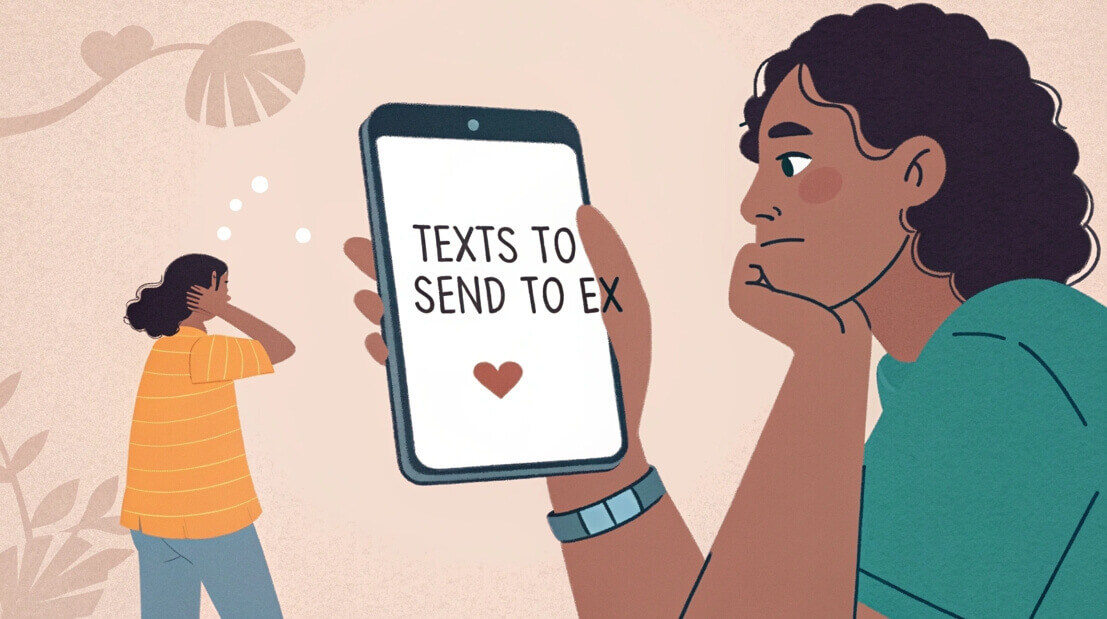At some point, you might find yourself needing to have that STI talk with your boyfriend or girlfriend. As everyone knows, it can be quite uncomfortable. Maybe you’re scared he’ll judge you, or worse—walk away. The fear is real. You don’t want him thinking you were reckless, and honestly, you’re not even sure where to start. But here’s the thing: honesty matters. If he cares, he’ll listen. If he doesn’t? Better to know now. The real question is—how to tell someone you have an STI? Let’s get into it.
How to Tell Your Partner You Have an STI: The Right Way to Prepare
It’s never on anyone’s bucket list of life experiences to have the STI talk with their partner. But honesty is key in any relationship, and the right approach can make this conversation a lot easier—for both of you. Let’s get you prepared.
Do Your Research First
Your partner will have questions—lots of them. What does this mean for them? How is it transmitted? Is there treatment? Knowing the answers will help you feel more confident and put their mind at ease. A little knowledge can go a long way.
Get Your Resources Down
Not everyone processes big news at the moment. They might need time to sit with it, read up on it, and come back with questions later. Be ready with links from reliable sources like the CDC or ASHA, so they have the facts, not just their fears.

Make Out the Perfect Time and Place
This is not a conversation for loud coffee shops or during a Netflix binge. Find a private, comfortable setting where you both feel safe. Also, avoid scheduling the conversation right after consuming alcohol – no drinks, no post-hookup pillow talk. It should be an honest conversation.
Expect a Reaction, and Stay Cool
At first, your partner might freak out. People hear ‘STI’ and get scared, because of old school sex ed and stigma. Not every reaction is about you, it’s about what they think they know. Calm down, give them time to think, and remind them STIs are treatable.
Drop the Blame Game
Even if you think they gave you chlamydia, pointing fingers won’t help. Focus on what’s next: testing, treatment, and moving forward together. This isn’t about placing guilt—it’s about protecting each other’s health.

Make It About Teamwork
This isn’t just your problem; it’s something you both navigate together. Reassure them that this doesn’t define either of you. The goal is to handle it as a team, not let it create distance. Communication and trust win every time.
How to Tell a Partner You Have an STI?
It’s understandable that you might have a hard time telling your partner you might have an STI, but not to worry—there are better ways to do it without making matters worse. Just read on!
How to Tell Your Previous Partners That You Have an STI/STD?
No matter how you and your ex ended, it feels so wrong to withhold your STI status—especially when you both had countless unprotected sexual encounters, and they might be on the verge of spreading it to a new partner.
But when you break the news, keep it direct. No need for long backstories. Just stick to the point. Also, be ready—they might be calm, upset, thankful, or a mix of all three. That’s normal.
✨✨Here are two simple messages you can copy and send:
- “Hey, I just found out I have chlamydia. My doctor says it’s best that past partners get tested. Even if you don’t have any std sti symptoms, it’s worth checking.”
- “I was recently diagnosed with [INSERT STI]. My clinician advised that past partners should get tested. Men always have no symptoms, but it can still be there.”
And if you’re unsure about expressing it directly or don’t want it traced back to you? That’s where Anonsms comes in. It sends a private, pre-written STI alert—no names, no awkward talks.
👉How to use Anonsms to Anonymously Text Your Partner About an STD:
- Go to the Anonsms STD text page
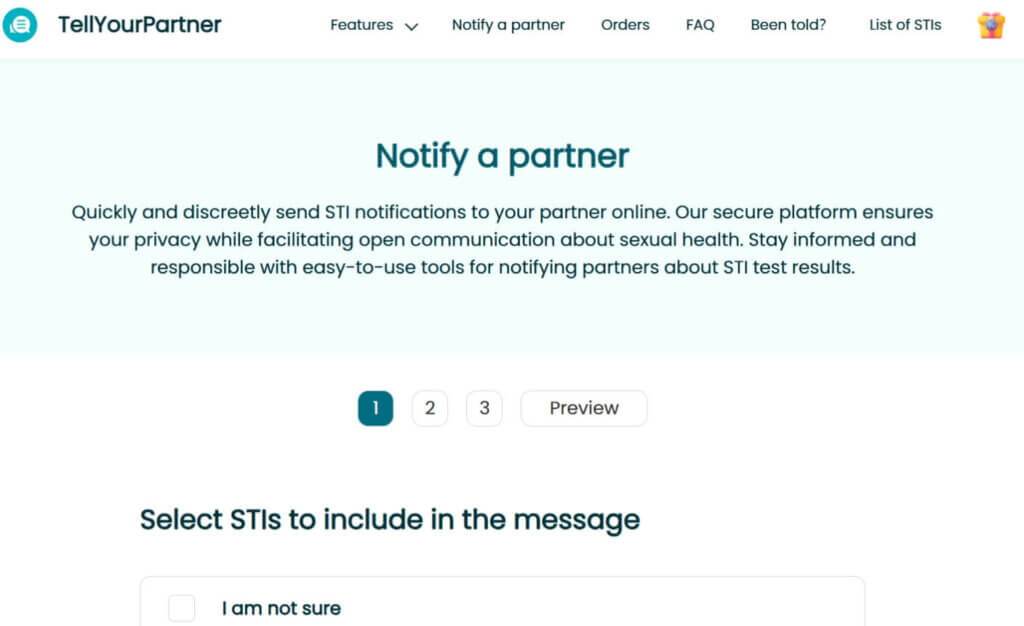
- Pick the STI (like chlamydia)
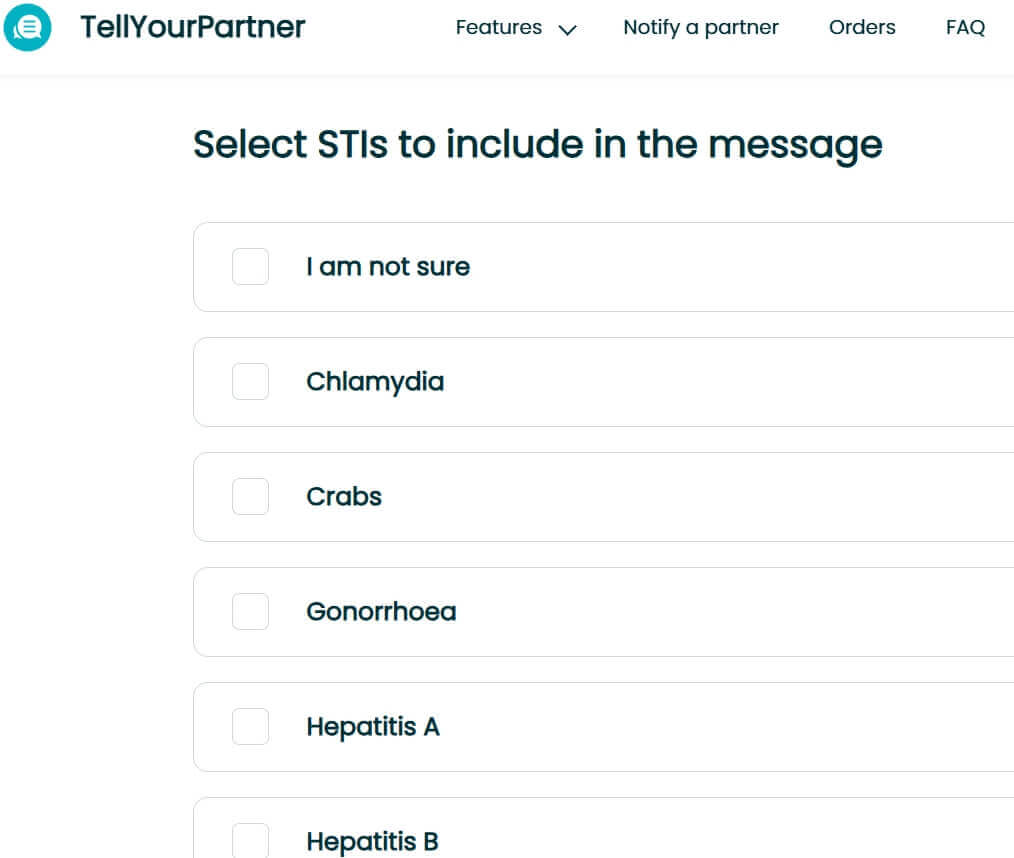
- Choose when the contact happened
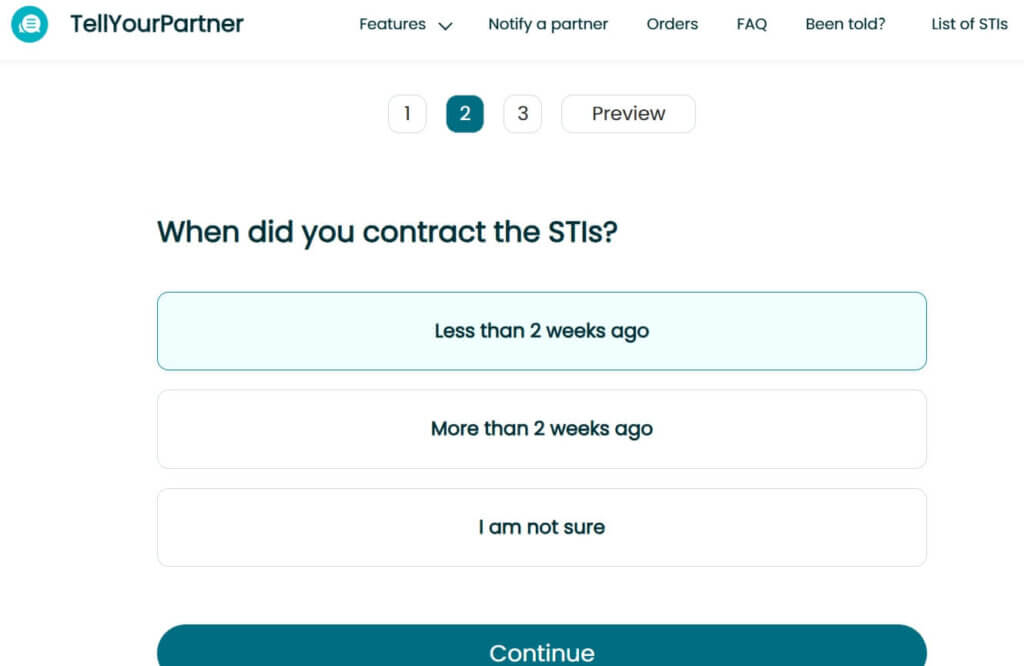
- Enter their phone number
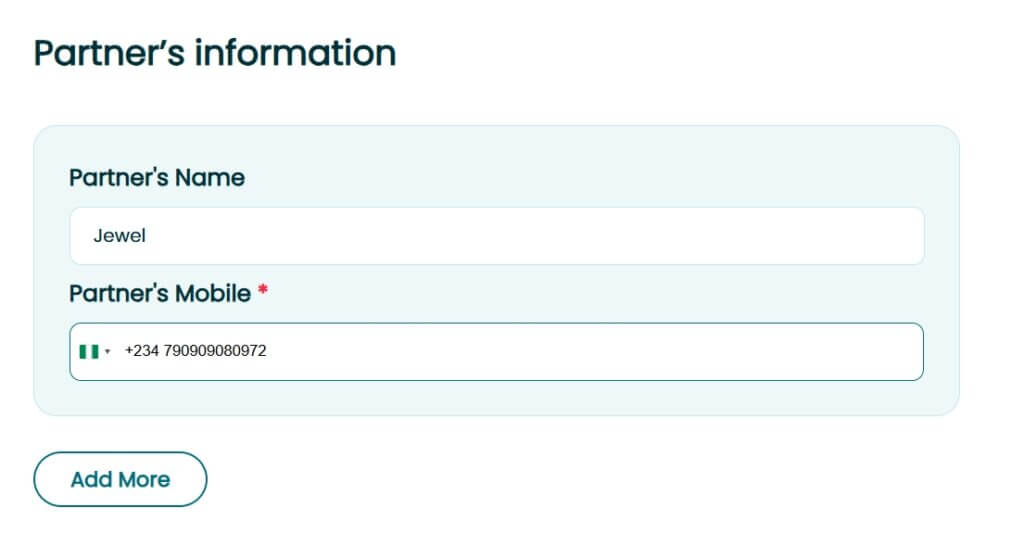
- Preview the message
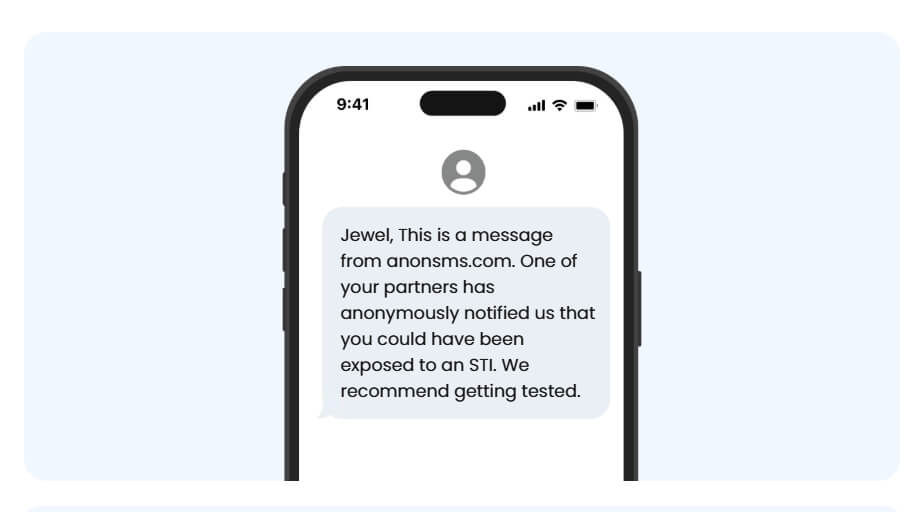
- Hit send
They’ll get a discreet heads-up. You stay anonymous. They stay informed.
And if you’re the one on the receiving end—if you received an anonymous STD text—refer here for how to react to it.
How to Tell Your Significant Other You Have an STI/ STD?
If you keep procrastinating on telling your partner your STI status, ask yourself, “Would I like it if the situation were reversed and my partner kept such information from me for a long time?” Now, of course, you wouldn’t. So, here is how to tell your significant other you have an STD in such a case? Well, keep it calm, straightforward, and respectful. It’s about protecting both of you, not just delivering bad news.
First, set the right tone. Choose a private, comfortable setting where you both can talk without distractions. Stay confident, and remember, having an STD doesn’t define you—it’s just something to manage together.
✨✨When you bring it up, be direct but gentle. If you haven’t been intimate yet, say something like,
- “Before we take things further, I want to be honest with you. I have [STD name], and I want us to talk about how we can stay safe.”
- If you’ve already been intimate, be upfront: “I need to talk to you about something important. I recently found out I have [STD name], and I wanted you to hear it from me first.”
Expect different reactions—shock, questions, even silence. Give them time to process, and reassure them with facts. Offer to research together or visit a doctor. This isn’t about guilt or blame; it’s about respect. And that eases your anxiety about how to tell your partner you have chlamydia.
Using Which Methods to Tell Someone You Have an STI
In any situation that requires two people to agree, the approach matters. The same goes for when you’re looking for how to tell someone you have an STD. Well, there are 3 ways you can go about it.
Method 1: Tell Your Partner about STIs in Person
If you’re in a serious relationship, talking in person is usually the best option. It allows for open conversation, immediate reactions, and emotional support. Pick a private, comfortable place where you won’t be interrupted. Stay calm, be honest, and have some facts ready. Your partner may need time to process, and that’s okay. This isn’t about blame—it’s about working together to stay healthy.
Method 2: Tell Someone You Have an STI Via Phone Calls
Not all conversations have to be face-to-face. If it is a distant relationship or the two of you are not very close, then a phone conversation will do. Be straight but polite; don’t over-explain. Answer questions and advise a check-up. The goal is to be responsible, not frightening while allowing real-time interaction and a needed break.
Method 3: Tell a Partner You Have an STI Anonymously
Sometimes, you might not feel safe or comfortable telling someone directly. If that’s the case, going anonymous is an option. This works well for past partners you’re no longer in contact with or situations where confrontation isn’t ideal.
Well, you can use Anonsms in this case. It lets you send a discreet message so they’re informed and can take the right steps. Likewise, Anonsms also has a well-protected platform that ensures your privacy while you engage in open communication about sexual health with the other person. Anonsms eases the scary question: “How do you tell your boyfriend you have an STD?”
Bonus Tips: How to Minimize STI Transmission Between Partners?
No one wants to have the STI convo, but if you care about your partner, it’s a must. Here’s how to keep each other safe:
- Always use condoms the right way.
- Get screened for STIs together.
- Don’t sleep around with too many people.
- Get the HPV and Hep B shots.
- Talk honestly about your past.
- Skip sex if anything feels off.
Not sure how to tell a partner you have an STI? You can always refer to the section above.
Conclusion
Telling a partner about an STI is tough but necessary. How to tell someone you have an STI? Be honest, stay calm, and choose the right moment. Face-to-face is best, but phone or anonymous messages work too. Provide facts, expect reactions, and focus on teamwork. Protect each other’s health with open communication.
FAQs About Telling Partner about STI
Do you still have questions about how to tell someone you have an STI that haven’t been addressed in this guide? Well, here are some answers that might relate to what you’re looking for.
1️⃣Is It Common to Get STIs?
Totally. STIs are more common than you’d think. The World Health Organization says over 1 million STIs are picked up every single day. In 2020 alone, there were 374 million new cases of curable infections like chlamydia and gonorrhea. In the U.S., 20 million new cases show up yearly. So no—you’re definitely not alone. What causes STI? Mostly unprotected sex, but also sharing needles or even skin-to-skin contact for some infections.
2️⃣Do You Legally Have to Tell Someone You Have an STD?
In most cases, no. But with HIV, things get serious. In places like England or Wales, not telling someone you have HIV and then transmitting it—especially without using protection—can lead to legal trouble. Even if you don’t spread it, just putting someone at risk without them knowing can cause legal issues in places like Scotland.
3️⃣How to Apologize for Giving Someone an STD?
Start by owning it. Find a quiet, private space, and be honest—no dodging or blame-shifting. Say you’re truly sorry for what happened, and let them know you care about their health. Offer support, encourage them to get tested, and explain that you’re doing the same. This isn’t just an apology—it’s about building trust again. Even if it’s tough, being transparent is key when learning how to tell someone you have an STI the right way.

 Anonsms
Anonsms
 TellYourPartner
TellYourPartner




